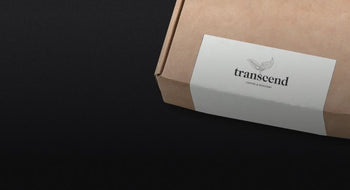Direct Trade vs. Fair Trade Coffee: What's the Difference?

Introduction
Coffee lovers worldwide have become increasingly intentional about the impact of their cup of joe. As a result, the demand for ethically sourced coffee has grown substantially. This has led to the rise of both Direct Trade and Fair Trade coffee options. This blog post will explore the differences between these two approaches, highlighting their unique characteristics and benefits.
What is Direct Trade Coffee?
Direct Trade is a coffee-sourcing model that generally emphasizes a direct relationship between a coffee roaster and coffee producers. This oversimplification typically ignores other parties in the supply chain, such as importers and exporters. With that said, a direct trade approach encourages coffee roasters to engage in direct relationships with farmers, ensuring transparency in pricing and quality. Direct Trade focuses on building long-term partnerships based on quality, sustainability, and mutual respect.
Key Features of Direct Trade Coffee:
- Relationship-based: Direct Trade fosters close relationships between coffee roasters and farmers. This allows them to work more collaboratively, sharing knowledge and expertise to continuously improve the quality of the coffee produced.
- Greater transparency: Direct Trade emphasizes transparency in the supply chain, with a focus on sustainable pricing. Most coffee producers around the globe struggle to obtain prices for their coffee which cover the basic cost of production. Transcend’s approach to Direct Trade relationships has always focused on paying truly sustainable prices so producers can thrive within the challenging industry, which historically has taken advantage of coffee farmers.
- Quality control: Since coffee buyers are more involved in the process, they can ensure the quality of the coffee they source. This results in a more consistent and superior product, as conversations can occur between producers and coffee roasters and meaningful feedback loops can be established to benefit both parties.
Advantages of Direct Trade Coffee:
- Better incomes for farmers: Direct Trade works to eliminate as many intermediaries as possible in the supply chain, ensuring a larger share of the profits reaches the farmers. This provides them with improved livelihoods, allowing them to invest in their communities and agricultural operations.
- Environmental sustainability: Direct Trade often encourages more sustainable farming practices, such as organic cultivation and biodiversity preservation. Coffee buyers often collaborate with farmers to implement eco-friendly methods, reducing the impact on the environment.
- Unique and traceable flavours: Many Direct Trade coffees focus on single-origin beans, allowing consumers to experience a greater range of distinctive flavours associated with specific regions. This promotes coffee appreciation and highlights the dedication of farmers in producing exceptional coffee.
What is Fair Trade Coffee?
Fair Trade is a certification system designed to address coffee farmers' social and economic challenges. Established organizations, such as Fairtrade International, set standards that aim to protect workers' rights, promote sustainable practices, and ensure fair pricing.
Key Features of Fair Trade Coffee:
- Social responsibility: Fair Trade certifications require farmers to adhere to specific labour standards, including fair wages, safe working conditions, and the prohibition of child labour.
- Fair pricing: Fair Trade ensures that farmers receive a minimum price for their coffee, typically higher than market rates, providing a more stable income. As of August 1, 2023, the minimum price for certified Fair Trade coffee was $1.80 per pound. If the coffee farm is also certified as Organic, the price goes up by another $0.40 per pound.
- Community development: Fair Trade organizations often invest part of the premiums earned into social projects within coffee-growing communities, such as healthcare, education, and infrastructure development.
Advantages of Fair Trade Coffee:
- Poverty alleviation: By providing more stable incomes to producers or cooperatives and enabling community development projects, Fair Trade prices can help to alleviate rampant poverty in coffee-growing regions.
- Workers' rights protection: Fair Trade certifications work to ensure that coffee farmers and workers are treated fairly, promoting social justice and sustainable livelihoods.
- Wider consumer accessibility: Fair Trade labels help consumers quickly identify more ethically sourced coffee, providing them with a clear choice to support fair practices.
Conclusion
Direct Trade and Fair Trade coffee initiatives aim to create a fairer and more sustainable supply chain. Direct Trade emphasizes direct relationships, quality control, and focused partnerships to ensure premium quality coffee. Fair Trade, on the other hand, focuses on social responsibility, fair pricing, and community development.
Transcend Coffee has squarely planted itself in the Direct Trade camp over the past fifteen years as it views that model as a more sustainable approach to sourcing quality coffee. While Fair Trade coffee has made significant contributions to the pricing model, in many countries, that premium still does not cover the basic cost of production for many coffee farmers. The challenge for producers (individuals or cooperatives) is the cost of getting and remaining certified.
The Direct Trade model is, in our opinion, the most sustainable approach to sourcing coffee. It enables farmers to have direct input into what they get paid for their product, and it provides stability from one year to the next, at least with our approach, as producers know that they have long-term customers.



Leave a comment